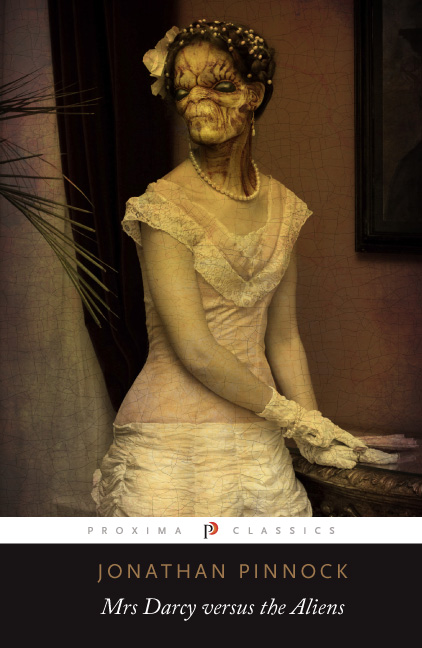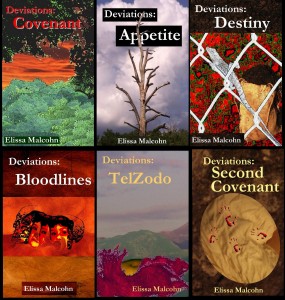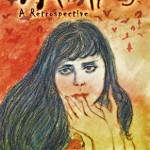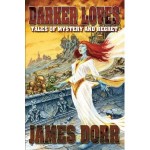Archive for 2011
Flight of the Cosmonaut!
David Wright, past contributor to Niteblade, announces the debut of his first novel, Flight of the Cosmonaut!
http://www.fictionworks.com/ebooks.htm
http://www.youtube.com/watch?v=BnK-yWWWbmY
About this book:
Georgi Petrov is a brave, young Soviet test pilot recruited into the secret cosmonaut corps to make history as the first man in space, or die trying. But after a few short weeks of training behind the Iron Curtain, he quickly finds himself caught in a dangerous world of volatile rockets, lethal KGB agents, tyrannical commanders and mysterious rocket scientists. How many lives are they willing to sacrifice to achieve their ambitious goals and who will be the next to die? But if Georgi ever hopes to escape his violent past and start a new life with the green-eyed girl of his dreams, he has to take this one desperate chance for glory—this last Flight of the Cosmonaut!
Niteblade Contributor Interview with Stephanie M. Wytovich
Stephanie M. Wytovich is an Alumni to Seton Hill University where she was a double major in English Literature and Art History. Amongst having numerous publications, the most recent being her poem “Body Suit,” she enjoys painting and playing the piano. She is currently attending graduate school to pursue her MFA in Writing Popular Fiction, and is a nominee for the Rhysling Award for her poem “The Cheater.” She plans to continue in academia to get her doctorate in Gothic Literature. Follow her on Twitter or stop by Stephanie’s blog to say hello.
When did you first recognize yourself as a poet?
I recognized myself as a poet when I got published with a magazine that wasn’t affiliated with my school, even though I had been writing poetry since I was about eight years old. When Eclectic Flash Literary Magazine published my piece “The Necklace,” it gave me the confidence that I needed to start looking at writing as a full time job, and a career that was now possible, instead of just a dream.
What draws you to speculative fiction?
Speculative fiction calls to me because it allows me to create worlds and situations and then manipulate them to my liking. I can visit faraway worlds, bring back the dead, or fall in love with an alien, and no one can tell me that it can’t happen. The possibilities are endless, and sometimes its good not to have boundaries because then your creativity can flow without fear. And while I love Fantasy and Science Fiction, Horror will always be my first true love because nothing gets my blood flowing like that feeling of pure, utter fear.
Is there a piece of writing advice you’ve never followed?
Write what you know. I hate that saying because why would I only want to focus on stuff that I’ve experienced or could relate too? There is a world of information and possibilities out there, and I want to explore every dark, mysterious corner that I can and sink my teeth into it until I figure it out.
In the December 2010 issue of Niteblade, Rhonda chose to publish your poem, “The Cheater“. Is there a backstory on how it came about?
I’m a big believer of using writing as a means of catharsis, so as you can probably guess, this piece was inspired by infidelity. It’s ironic because while it was a really bad time in my life, I got a lot of great material out of it because I didn’t censor myself. I wrote what I was feeling no matter how angry or sad I was, and when “The Cheater” was finished, I felt like I could start to breathe again, because I had not only figuratively put an end to a bad situation through the poem, but literally shut the door on a very real and unhealthy relationship at the same time.
For those that have read it, the piece is about a character taking control of their situation after realizing that their partner was unfaithful. As a horror writer, I wanted to portray the confrontation scene with a level of high energy that matched the pain the narrator was feeling…so that’s why he/she was given the chainsaw as their weapon of choice; it’s loud, it’s deadly, and it can rip you to pieces just like a bad relationship can.
There were a lot of tears that went into this poem…from both myself and the character that my protagonist murdered, but in the end, I think we both came out better from it, ha.
What have you been working on lately?
I’m currently working on a poetry series based around dark fairy tales, as well as my first novel (that is currently untitled). If I were to describe it, I would say that it’s Rosemary’s Baby meets The Exorcist meets Paranormal Activity. It’s been a lot of fun to write, and I’ve met a lot of interesting characters along the way and I’m excited to see where it goes!
Is there anything else you’d like to share with Niteblade’s readers?
Don’t write what you know. Write what you want to know. Explore the nooks and crannies in the darkest places of your mind, and don’t be afraid of what you find there. Writing is meant to take you places, and even if you’re scared of where you’re going, don’t pass up the ride.
December 2011 Issue
 |
|
Issue #18 of Niteblade Magazine is all about poetry.
We took some of our favourite poems from past issues of Niteblade and shuffled them together with fantastic new pieces to create this fantastic verse-centric volume. Best of all? It comes in both .pdf and booklet versions. That’s right, a physical issue of Niteblade you can hold in your hot little This issue includes poems by:
|
Get your copy today!
| .PDF Copy $2.99 |
Physical Copy $7.50 + S&H |
2011 Pushcart Nominations
Every year it is my honor and my chore to nominate stories and poems from Niteblade for The Pushcart Prize. It is my honor because it is truly a privilege and a joy to recognise some of the awesome works included in Niteblade’s pages and to shine a spotlight on the writers and poets who have created them. It is my chore because it truly is an immensely difficult task to pick only six pieces from everything we’ve published over the year. As difficult a task as it is, I have done it and I am proud to announce our Pushcart nominations as chosen by myself, Rhonda Parrish.
Niteblade nominees, for works published in 2011:
“Running Empty in a Land of Decay” by Damien Walters Grintalis (March 2011)
“First Loves For the First Time” by Keith Kennedy (March 2011)
“Maribelle Remembers Ice” by Brenda Stokes Barron (September 2011)
“A New Life” by F.J. Bergmann (December 2011)
“Initiation” by Caitlin Walsh (December 2011)
“a stitch in time” by Catherine Edmunds (December 2011)
Congratulations to all our nominees. We wish you the very best of luck.
Niteblade Contributor Interview with Jonathan Pinnock
On this Halloween I’m happy to present you with an interview with Jonathan Pinnock. I hope you find Jonathan as engaging as I did.
When did you first recognize yourself as a writer?
I’m still working on it. But I think the point at which I began to think I might be able to recognize myself as a writer was when I heard I’d been shortlisted for an open competition (the 2007 University of Hertfordshire Creative Writing Awards).
What draws you to speculative fiction?
I think it’s the freedom to go anywhere you want, so that you can take an interesting idea to its logical conclusion and then go a bit beyond that.
Is there a piece of writing advice you’ve never followed?
Loads. Particularly stuff to do with being disciplined and writing so many words every day, that kind of thing. I’m pretty chaotic about when I write and I tend to need a good deadline to focus my mind.
In the December 2008 issue of Niteblade, Rhonda chose to publish your story, “An Unsuitable Replacement“. Is there a story behind how it came about?
As it happens, there is. I originally wrote it during a charity write-a-thon I took part in back in late 2007. The way this worked was that a list of prompts were published every hour, on the hour, and you had an hour in which to write something based on a selection of those prompts.
I can therefore tell you quite precisely that “An Unsuitable Replacement” was written between the hours of 8PM and 9PM GMT on Thursday November 15th, 2007, using the prompts “I took my looks for granted” and “My body is wearing out”.
Apart from changing the title (it was originally called “A Matter of Life and Death”, I don’t think I did a lot of further editing before submitting it to Niteblade.
What have you been working on lately?
My first novel “Mrs Darcy versus the Aliens” was published by Proxima Books, an imprint of Salt Publishing, on September 1st, so I’ve been spending a fair amount of time lately promoting that. I’ve also been writing a few short stories and working on a Big New Project that I’m going to keep under my hat until I’m sure it’s going to fly.
Is there anything else you’d like to share with Niteblade’s readers?
Well, here’s the website for “Mrs Darcy versus the Aliens”: www.mrsdarcyvsthealiens.com, and here’s a spoof Wikipedia I’ve put together to give a bit of unreliable background information: www.mrsdarcyvsthealiens.com/wiki. Here’s my writing website: www.jonathanpinnock.com, and you can follow me on Twitter as @jonpinnock. You can also follow Mrs Darcy on Twitter as @RealMrsDarcy.
Niteblade Contributor Interview with Megan Arkenberg
Megan Arkenberg’s stories and poems have appeared in multiple publications. She’s a magazine editor too. I can’t help but think she’s somehow managed to add an extra ten hours into the day. You can visit her on the web at http://www.freewebs.com/meganarkenberg/.
When did you first recognize yourself as a writer?
I was in first grade. We were writing stories about superhero potatoes. My teacher was hard-core impressed by the phrase “as a tear rolled down her cheek,” which I must have
picked up from a book somewhere. That was the day I declared myself “good at writing.”
I didn’t become serious about being a writer until junior high, when we were required to take keyboarding classes. Suddenly, drafting stories stopped being a frustrating rush to record my ideas before I forgot them completely; for the first time, I could get words on “paper” as quickly as they sprung into my head. I’m sure I annoyed everyone around me with my insistence that I was an “author” and my lengthy descriptions of my novels-in-progress until my sophomore year of high school, when my stories finally started getting published.
Ironically, though learning to type was what made me confident about writing in the first place, I’ve recently returned to drafting with pen and paper—it forces me to slow down and pay attention to my sentences!
What draws you to speculative fiction?
Something’s a little screwy in my brain’s wiring, I think. It never comes up with ideas like “high school athlete loses scholarship after drunken party results in manslaughter charge.” No, it suggests things like “girl trains ravens to attack zombies,” or “woman is murdered on page 217 of an obscure poet’s biography.”
I also like the way secondary worlds can reject the historical second-class place of women, people of color, and people who live outside of accepted gender norms. Real Victorian women may have been encouraged to stay in the home, but there’s no reason my female steampunk hero has to put up with that kind of nonsense! Sometimes, I just want to enter a safe space, where I can play dress-up with historical settings without dealing with depressing historical mind-sets. Secondary world speculative fiction lets me do that.
Is there a piece of writing advice you’ve never followed?
I’ve never understood the general animosity towards adverbs. Some writers claim that all adverbs can be replaced by stronger verbs, but I think that’s nonsense. There’s a world of difference between “whispering” and “speaking quietly.” “Running” and “walking briskly” are two different actions. There is no good verb for “fiercely unhooking her necklace.” Of course, it is possible to use too many adverbs, just as it’s possible to use too many adjectives, or too many nouns. But stripping a story to the bare minimum of
adverbs isn’t always necessary or desirable.
In the September 2010 issue of Niteblade, Rhonda chose to publish your story, “Rosewinter“. Is there a story behind how it came about?
I read a story in an anthology—I don’t remember which, and to be honest, I’d prefer not to remember—about a girl who received a magical rose from her magical
adventuring lover every winter. This irked me incredibly. He’s off having marvelous adventures, and she (and the reader) is stuck at home, waiting for a silly rose! If they missed each other so much, why couldn’t she go adventuring with him?
That became the core idea of “Rosewinter”—why might one lover hide her adventurous life from the other? What dark secrets could that innocent gift, a winter rose, be hiding?
I wish I could remember where I got the idea for the braided chronology, past-present-past-present-future-present-future. I’ve always enjoyed playing with the way I tell my stories; this is most obvious in “Rosewinter” and in one of my other favorite short stories, “The Copperroof War.”
What have you been working on lately?
The combined influence of John Milton and the Book of Enoch has resulted in a lot of angel-and-demon stories recently. For some reason (I blame my screwy brain-wiring), these same stories also include a lot of heavy machinery: trains, wind turbines, warships and dirigibles. I also find myself writing more present-day stories, populated by people in jeans and tee-shirts instead of corsets and waistcoats, though most of these stories still have otherworldly settings—places ruled by tribes of zombies or metal angels, trains that run by themselves or hoard treasure like dragons.
Is there anything else you’d like to share with Niteblade’s readers?
I love getting feedback—I think most beginning writers do. Even if it’s just “funny story” or “I liked the part where the guy choked on a fishbone” or “I still don’t understand why Susan married the goldfish,” it tells me someone actually read and paid attention to the story. My e-mail address is markenberg@yahoo.com –I promise I don’t bite!
I’d also like to plug my two e-zines, Mirror Dance (fantasy of all flavors!) and Lacuna (historical fiction, alternate history, and speculative fiction with a historical setting).
Poetry Anthology Update
Alexa and I had been hoping to respond to all submissions to the poetry anthology by October 15th, but there is a significant quantity of high-quality submissions to go through so we may need a little longer than that. We are working through them as quickly as we can while still giving each piece a fair assessment. Honest.
All other submissions may also have slightly longer wait times than usual.
Niteblade Contributor Interview with Jacinta Butterworth
Today’s interview is with Jacinta Butterworth, a short story writer, who is someone you should keep your eye on. She’s been nominated or short listed for several prizes and I’m certain we’ll be hearing more about her work.
When did you first recognize yourself as a writer?
I don’t think I do. I was first published in 2006. After all this time I still tend to think of myself as somebody who writes, rather than a writer. Not that there’s really a difference. It’s just that when I think of a writer I think of somebody who writes all the time or has had a book published or gets paid decently for their work. Maybe I’m just scared of taking myself seriously because then I can actually fail. Not that I can’t fail anyway. (In the back of my head there’s always this little voice whispering if I don’t believe I’m a writer I’ll never be one. Too much Oprah I guess.)
What draws you to speculative fiction?
Speculative fiction lets me write about the real world in a creative way. For me, the best speculative fiction is written for young adults. I love The Hunger Games by Suzanne Collins, The Forest of Hands and Teeth by Carrie Ryan and Shiver by Maggie Stiefvater.
Is there a piece of writing advice you’ve never followed?
Never use the second person. There was a time when I was obsessed with it. In fact, my mantra was always use the second person. What else? Research publishers and publications fastidiously before you submit your work. Obviously I believe in researching publishers and publications generally but I try not to set my heart on one in particular before I submit my work. I’m a fan of the ‘shotgun approach’ – sending my work out far and wide with the belief I’ll get a hit sooner or later.
In the December 2010 issue of Niteblade, Rhonda chose to publish your story, “Love Affair“. Is there a story behind how it came about?
“Love Affair” was the first story I ever had published. I wrote the story when I was about sixteen (I’m now twenty-four). I redrafted it and redrafted it before submitting it. I was super excited when cOck accepted the story for publication – not only was I going to be getting paid but the editors had decided to use it to promote the anthology. The story later received an honourable mention in the best horror short story category at the 2006 Aurealis Awards. Finally, it was reprinted in Niteblade and nominated for the 2010 Pushcart Prize. I’m proud of it. It was a good first (and how often can you say that?).
What have you been working on lately?
I have been redrafting a handful of stories, writing a new one and looking forward to editing a young adult book I wrote last year.
Is there anything else you’d like to share with Niteblade’s readers?
One of my horror short stories was shortlisted for the 2010 Wet Ink Short Story Competition. You can read it here:
http://www.wetink.com.au/assets/pdfs/reads/Issue_23/fence.pdf
Niteblade Contributor Interview with Elissa Malcohn
Elissa Malcohn’s award-winning fiction, nonfiction, and poetry have appeared in dozens of publications from the 1970s on. If you haven’t stopped by Malcohn’s World you should if for no other reason than to read her great collection of rejection letters.
When did you first recognize yourself as a writer?
I was in grade school. When I graduated, PS 99 in Brooklyn ordered two English medals, renamed one its first Creative Writing medal, and gave it to me. I was already writing my first speculative fiction stories. I was also one of two people in my graduating class to win a Read Magazine Creative Writing Award.
What draws you to speculative fiction?
The literature of mythology (especially the retelling of Greek myths by Bernard Evslin, Dorothy Evslin, and Ned Hoopes) drew me in when I was a child. So did television programs like Star Trek and movies animated by Ray Harryhausen. I first read SF when I was nine, but was galvanized by anthologies about three years later and was weaned on the New Wave subgenre. (Peter Graham’s adage, “The golden age of science fiction is twelve,” literally applies to me.) For me, speculative fiction is away to plumb the human psyche and soul through the stealth of metaphor.
Is there a piece of writing advice you’ve never followed?
That one should never submit to a non-paying market. I take everything on a case-by-case basis.
In the June 2010 issue of Niteblade, Rhonda chose to publish your story, “Icarus Redux“. Is there a story behind how it came about?
I initially wrote “Icarus Redux” in response to a submissions call from a horror anthology that never got off the ground. The call had specified flash fiction, so I cast about for a story arc that would fit. Part of my inspiration may have come from a severed cardinal’s head that had turned up in my yard not long before. I suspect a great horned owl was the culprit there.

What have you been working on lately?
I recently released Second Covenant, the sixth and final installment of my Deviations series (available for free download through my website, http://home.earthlink.net/~deviations). I’m working on a “behind the scenes” supplement to the saga, along with some shorter pieces.
Is there anything else you’d like to share with Niteblade’s readers?
My personal mantra is, “Nothing is wasted.” I apply that to everything, from the crap I write while trying to get a scene right, to life in general.
Niteblade Contributor Interview with James S. Dorr
James S. Dorr’s poetry has appeared in Niteblade several times. Here’s an interview which will let you get to know him a bit better.
When did you first recognize yourself as a writer?
It’s hard to say. My original interest even by the time I had entered college was in visual arts. I was a cartoonist/illustrator on the humor magazine (eventually becoming art editor), I designed posters, I even did set design for the campus “little theatre.” However I also did some utility writing on the humor magazine, as well as being exposed to writing as an illlustrator on the literary magazine staff, and then when the Science Fiction club started a fanzine (think amateur ezine, but done with mimeograph on paper) I both illustrated and wrote generally humorous sf/fantasy parodies. By grad school I’d turned more to the writing end, doing a weekly science/humor column, for instance, which led to editorial work (albeit still doing occasional article illustrations), and then to a paying gig as a technical writer (which also involved editorial work), so I suppose it happened somewhere in there. Eventually I left technical writing, freelancing real estate and business/consumer articles, and then got a more mundane flunkey job which freed me to go back to “creative” writing including poetry — which is probably more or less where I am now. So I’d have to say it was more a process, or a “coming to realize over time” than an actual sudden revelation.
What draws you to speculative fiction?
Imagination, I think. I like to think of impossible things before breakfast — except that my imagination isn’t that good. Thinking up story or poetry ideas is a struggle for me, but as a kid I loved reading science fiction, then later fantasy via, at first, The Lord of the Rings, and through it all horror via the Modern Library Giant edition of The Complete Tales and Poems of Edgar Allan Poe (with tiny type that grows harder to read, but it’s still on my bookshelf!) and Ray Bradbury’s The October Country, etc., drawing on others’ imaginations to feed my own. Then, as I was moving away from freelance nonfiction work, I also made it a point to experiment with fiction writing myself, to learn the differences in the mechanics of writing to entertain rather than teach, for instance, so while I still have trouble with ideas, I now go to nonfiction — history, biography, travel, science — to find things I can use to put into stories.
Is there a piece of writing advice you’ve never followed?
“Always write at least a little every day.” Or, “write at least a set amount every day,” or “an hour every day,” or . . . you get the idea. But that’s the sort of thing I did for work, and creativity, I think, has to be a form of play. Even working, my best moments came when I had the flexibility to make my own schedules — I might have to write to a specific deadline, but when I got started was still my decision. So, while I can see the sense of the advice, especially for someone starting into writing cold — think of it then like practicing a musical instrument (and, yes, I play music too, as tenor in a Renaissance recorder consort that I also lead) — I myself am too undisciplined to follow it seriously. Rather, I like things to be open ended, preferring not to start a new story, for instance, unless I have at least a four-hour block free ahead of me. While on other days I might not write at all, but there are other things that need to be done too like submitting work, or contacting editors, or proofing galleys, which might be less fun but may also free up my unconscious mind to be ready when, maybe the next day, meybe next Saturday, I do find time to sit down and start writing.
In the March 2010 issue of Niteblade, Rhonda chose to publish your poem, “Second Chance“. Is there a story behind how it came about?
“Second Chance” was itself a second chance in its way. I had sent Rhonda a group of poems including two haiku-styled pieces about killer snowmen. But then I discovered one of the two had already been sent to another market, so I re-sent the others with an apology and explanation, offering “Second Chance” as a substitute for the poem I was withdrawing. So these things happen. But then a week later I got an email with an apology of sorts from Rhonda saying she wanted to use both “Second Chance” and the second snowman poem, “Winter Wonder (2),” but wanted to hold “Winter Wonder (2)” until the December 2010 issue. And so both were published, though at different times.
But there’s a second story too. “Second Chance” was inspired by a movie with Bela Lugosi, The Return of the Vampire, in which a “staked” vampire is unearthed in a World War II London cemetery after a bomb hit during the Blitz. A clean up crew, assuming the stake is a shard from the bomb, pull it out and rebury the now “undesecrated” body, and so the fun begins. I’d like to add that “Second Chance” has been reprinted in Vamps (A Retrospective), my just-published book of vampiric poetry (of which more in a moment), but it happens, almost by accident, that it’s not — simply a case of there being too many shorter poems to choose from, so some had to be left out. However another poem from Niteblade, “High-Flying” from September 2007, does appear there.
- James S. Dorr
- Vamps Front Cover
- Vamps Full Cover
- Strange Mistresses
- Darker Loves
What have you been working on lately?
The immediate news is I’ve just published a book of poetry on vampires, Vamps (A Retrospective). Illustrated by artist and poet and fellow Niteblade contributor Marge Simon, it’s just come out as an August release in trade paperback from Sam’s Dot Publishing, and for only about the cost of a small pizza — well, depending on toppings and local variations — which makes it a bargain even if you just get it for the pictures. “Pimpage” aside, it has seventy-five poems of varying lengths, about a third of which are unpublished, looking at the vampire myth through various “characters” (Annchuck, Melissa, the gods of Ancient Greece, jazz fans, baseball nuts, Nikki, “Medusa,” victims and lovers, a vamp from the future. . . ) and from a variety of different angles. Also just out is Vanitas, an electronic chapbook from Untreed Reads Publishing of a story combining mystery, gothic romance, and steam that originally appeared in Alfred Hitchcock’s Mystery Magazine.
Looking ahead, I’ve been working on a novel based on a series of stories set in the “Tombs,” a vast necropolis and its environs on a far-future dying Earth, about a dozen of which have already been published in various places. This would be structured somewhat like Bradbury’s The Martian Chronicles or Christopher Barzak’s The Love We Share Without Knowing in that individual stories could still stand alone, but combined add up to a larger picture. Also, partly as a response to a weak economy, I’ve been pushing to republish earlier stories in various anthologies which, if not the highest paying, still add up — as well as getting work of mine back into circulation — along with writing new stories and poems.
Is there anything else you’d like to share with Niteblade’s readers?
Along with Vamps (A Retrospective), I have two collections of fiction and poetry, Strange Mistresses: Tales of Wonder and Romance and Darker Loves: Tales of Mystery and Regret, available from Dark Regions Press; a long out-of-print poetry chapbook Towers of Darkness (the origin of several of the characters in Vamps) originally published by Nocturnal Publications; and several hundred individual publications from Aboriginal Science Fiction and Alfred Hitchcock’s to Xenophilia and The Yellow Bat Review. For further news about me and my doings including new sales and reprints — and links to publishers for my books — along with occasional sample stories and poems, movies I’ve watched, bibliographic information, and maybe a note or two on my cat Wednesday, I invite readers to check out my site, and have a look around. Comments are always welcome.





